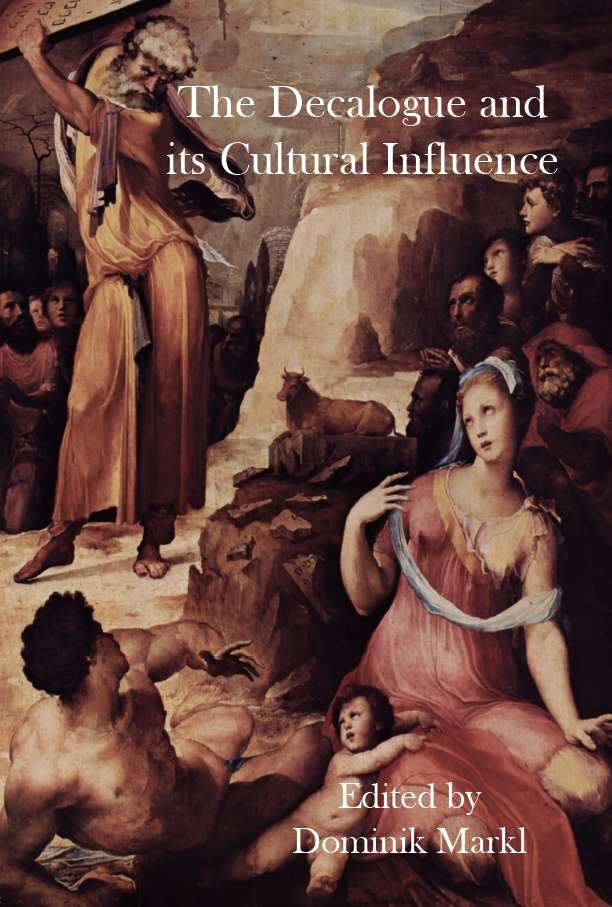The Decalogue and its Cultural Influence
Price range: £33.00 through £70.00
The 21 papers in this volume offer the richest and most wide-ranging interdisciplinary collection of studies on the reception of the Decalogue in culture, and will prove to be a fundamental resource for students of the biblical text and of the reception of the Bible in general.
Reception history is one of the most inviting, yet also one of the most difficult, fields in the study of the Bible today. It is difficult because it involves so many layers of expertise. The reception-historian does not only need a comprehensive knowledge and understanding of the biblical text itself, but also familiarity with the cultures and intellectual background of the many diverse ages in which it has been read and appropriated; and in addition needs to be versed in media other than writing, including the visual and performing arts.
But it is inviting because it carries its practitioners so far beyond the confines of ordinary textual study, with its concern for language and text, and out into an ocean of interdisciplinary engagement with writings that have, after all, stimulated the imaginations as well as the intellects of generations of religious (and non-religious) readers. The Decalogue is an obvious candidate for a reception-historical treatment. It has acquired over the centuries an enormous weight of commentary, and has been assimilated into the most varied cultures. Though a text, it has often also been an icon, appearing on walls in churches and now even in American courthouses. The subject was ripe for study, and the conference at which the papers in this book were delivered marked a significant milestone in biblical reception history’ (from John Barton’s Preface to the volume).
The 21 papers in this volume offer the richest and most wide-ranging interdisciplinary collection of studies on the reception of the Decalogue in culture, and will prove to be a fundamental resource for students of the biblical text and of the reception of the Bible in general.
Additional information
| table of contents | John Barton Preface Dominik Markl Interdisciplinary Perspectives on the Decalogue’s Cultural Radiance PART ONE: ANTIQUITY – BIBLICAL FOUNDATIONS AND EARLY DEVELOPMENTS 1. Dominik Markl The Ten Words Revealed and Revised: The Origins of Law and Legal Hermeneutics in the Pentateuch 2. Innocent Himbaza The Reception History of the Decalogue through Early Translations: The Case of Septuagint, Peshitta and Targums 3. J. Cornelis de Vos The Decalogue in Pseudo-Phocylides and Syriac Menander: ‘Unwritten Laws’ or Decalogue Reception? 4. Hermut Löhr The Decalogue in the New Testament Apocrypha: A Preliminary Overview and Some Examples PART TWO: MIDDLE AGES – LITURGY, HOMILY AND THEOLOGY 5. Miguel Lluch Baixauli The Decalogue in Western Theology from the Church Fathers to the Thirteenth Century 6. Ruth Langer The Decalogue in Jewish Liturgy 7. Aaron J Kleist Vernacular Treatments of the Ten Commandments in Anglo-Saxon England 8. Ralph Lee The Ten Commandments in the Ethiopic Tradition 9. Randall B. Smith Thomas Aquinas on the Ten Commandments and the Natural Law PART THREE: WORLDWIDE DISSEMINATION IN EARLY MODERN CATECHISMS AND CATECHESIS 10. Ian Green The Dissemination of the Decalogue in English and Lay Responses to its Promotion in Early Modern English Protestantism 11. Jonathan Willis Repurposing the Decalogue in Reformation England 12. Hans-Jürgen Fraas The Reception of the Decalogue in the Protestant Catechisms 13. James F. Keenan The Decalogue and the Moral Manual Tradition: From Trent to Vatican II 14. Luis Resines The Decalogue in American Catechisms of the Sixteenth Century 15. Veronika Thum The Decalogue in Late Medieval and Early Modern Imagery: Catechetical Purpose and Theological Implications PART FOUR: INTERPRETATIONS AND TRANSFORMATIONS IN THE EIGHTEENTH TO TWENTY-FIRST CENTURIES 16. Christopher Rowland ‘The Law of Ten Commandments’: William Blake and the Decalogue 17. Luciane Beduschi Joseph Haydn’s Die heiligen zehn Gebote als Canons and Sigismund Neukomm’s Das Gesetz des alten Bundes, oder die Gesetzgebung auf Sinaï: Exemplification of Changes in Musical Settings of the Ten Commandments during the Eighteenth and Nineteenth Centuries 18. Gerhard Lauer The Law and the Artist in the Age of Extremes: On Thomas Mann’s Das Gesetz 19. David J.A. Clines The Decalogue: The Scholarly Tradition Critiqued 20. Lloyd Baugh The Reception of the Decalogue in Film: Krzysztof Kieslowski’s Decalogue 21. Steven Wilf The Ten Commandments and the Problem of Legal Transplants in Contemporary America |
|---|---|
| author | |
| authors | |
| editors | |
| isbn | |
| list price (paperback) | |
| page extent | |
| publication | |
| publication date | |
| series | |
| table of contenta | |
| version |


Reviews
There are no reviews yet.